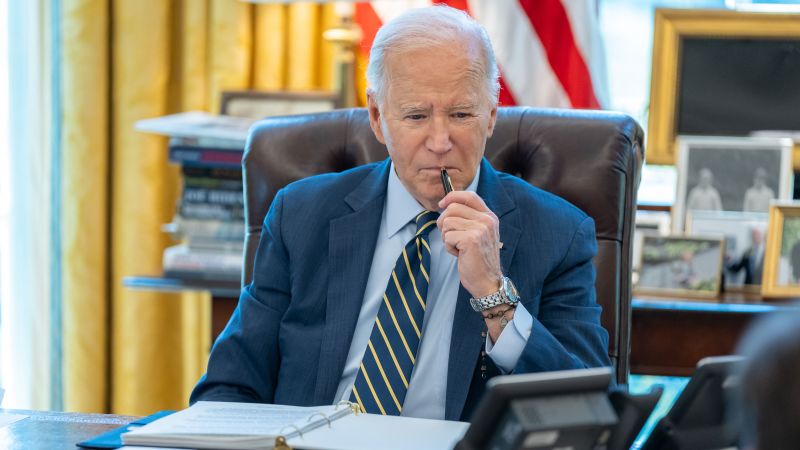President Joe Biden recently had a phone call with Israeli Prime Minister Benjamin Netanyahu, during which Biden requested immediate action to increase humanitarian aid entering Gaza. He demanded that Israel open up the Erez crossing and the port of Ashdod for aid and significantly increase supplies through Kerem Shalom. Netanyahu agreed to these requests, which were approved by the Israeli security cabinet that same night. This marked the first time Biden threatened serious consequences if Israel did not change its war strategy in Gaza, emphasizing the need to improve conditions for civilians in the strip.
While specific changes to US policy have not been specified, one potential option is to slow down the supply of weapons to Israel. Despite considering possible policy changes, the US continues to send weapons to Israel, including fighter jets and bombs. The Biden administration plans to monitor Israel’s efforts to address the humanitarian crisis in Gaza throughout April but has not outlined specific criteria for measuring Israel’s commitment to change. The call between the two leaders was prompted by an IDF strike that killed seven aid workers, raising concerns about Israel’s operational strategy and the protection of civilians.
Following the incident, the Israeli government conducted an investigation into the killing of the aid workers, leading to the firing of two senior officers and reprimanding a top commander. White House officials have avoided describing Biden’s demands to Netanyahu as an ultimatum, characterizing the call as direct and professional. The relationship between Biden and Netanyahu, which spans four decades, has been tested by the Israel-Hamas war, with both leaders facing growing backlash at home due to their handling of the conflict.
Biden’s support among key constituency groups has eroded since October, and he faces pressure from protesters calling for a permanent ceasefire. Netanyahu also faces a political reckoning once the war ends, potentially leading to the fracturing of his right-wing coalition. Biden hinted at a strained relationship with Netanyahu in a hot mic moment after his State of the Union speech, indicating that a “come-to-Jesus moment” was imminent. The ongoing conflict highlights the challenges both leaders face in managing domestic and international pressure.
As the Biden administration considers potential policy changes in response to Israel’s actions, there are concerns about the protection of civilians in Gaza and the humanitarian crisis. The evolving situation in the region underscores the complex dynamics between the US and Israel, with both countries navigating political and strategic challenges in the midst of a conflict that has sparked global condemnation. The outcome of the war and the leaders’ response to it will likely have significant implications for their political futures and the ongoing relationship between the two allies.


